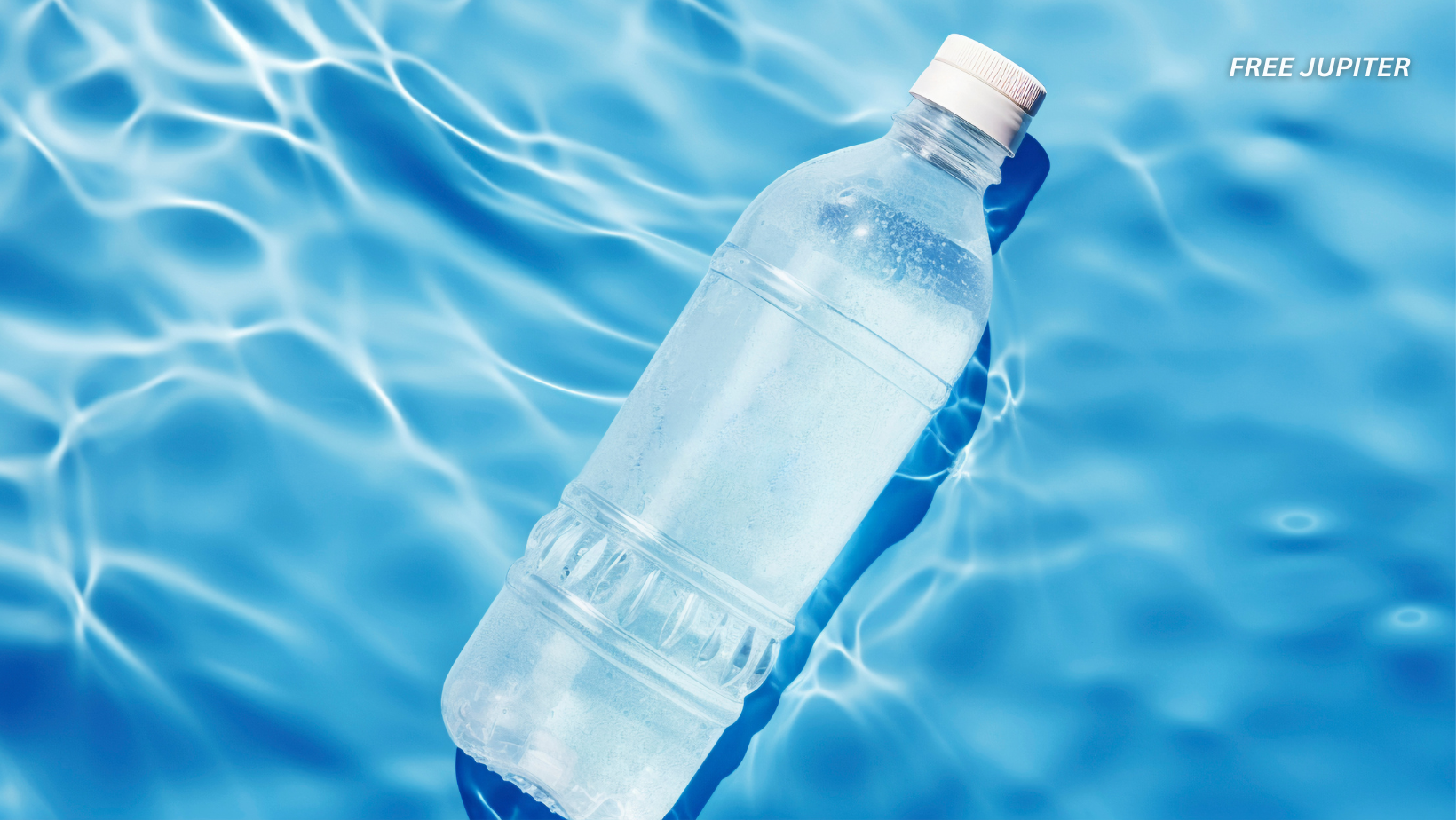When you feel parched, it’s instinctive to reach for a cold glass of water. It’s what most of us have been taught to drink to stay healthy and hydrated. No sugar, no calories, no fuss—just pure hydration, right?
Well, not so fast.
A curious study out of Scotland’s University of St. Andrews is turning our water-loving habits on their head. The researchers took a deep dive into how the body responds to different beverages—and water, it turns out, might not be the ultimate thirst-quencher we always thought it was.
What the Study Actually Looked At
In their research, scientists compared the hydration effects of various drinks—ranging from plain water to soft drinks, juices, and even beverages you wouldn’t immediately associate with hydration, like milk.
They weren’t just interested in how quickly a drink could satisfy thirst. They focused on something a little more subtle: how well these drinks help the body retain fluid over time.
In simple terms: you can gulp down a bottle of water, but if your body quickly flushes it out, that hydration doesn’t stick around very long.
Why Milk Surprised Everyone
Among the drinks studied, milk came out as one of the most hydrating options—and not just because it contains water. Milk has a unique blend of nutrients that plays a major role in how our bodies process it.
Here’s what makes milk special:
- Protein: This slows down digestion and encourages fluid retention.
- Natural sugars (like lactose): These help pull water into your cells more effectively.
- Fat: Though often demonized in modern diets, fat can help slow the passage of fluids from the stomach to the intestines, meaning hydration happens gradually and lasts longer.
All of this works together to keep you hydrated for a longer period compared to water, which tends to zip through your system fairly quickly.
Read more: Doctors Say That This Is the Best Time to Eat Dinner
How the Body Handles Different Drinks
Hydration isn’t just about drinking water—it’s about keeping the fluid in your body long enough for it to do its job. Drinks with electrolytes (like sports drinks), sugars, or even a little fat can help your body hold onto that liquid instead of flushing it right back out.
For example, drinks like orange juice or oral rehydration solutions (used in medical settings) also performed well in the study. They contain sugars and salts that aid fluid absorption and retention.
But some drinks, like sugary sodas or alcohol, didn’t fare so well. They might taste refreshing, but their high sugar or diuretic content can actually cause the body to lose more water than it keeps.
Hydration Isn’t One-Size-Fits-All
This doesn’t mean you should toss your water bottle in the recycling bin for good. Water is still incredibly important—especially for active people, those on calorie-restricted diets, or anyone looking to avoid excess sugars or fats.
But in situations where long-term hydration matters—say, before a long hike, a day under the sun, or when recovering from illness—a beverage like milk might offer more staying power.
Think of it like this: water is great for quick relief, but milk and similar drinks are better for the long game.
What About People Who Can’t Drink Milk?
Not everyone can tolerate milk, especially those with lactose intolerance or dairy allergies. Fortunately, there are other hydrating options that offer similar benefits:
- Coconut water: Packed with electrolytes and low in sugar.
- Oral rehydration solutions (like Pedialyte): Designed specifically for fluid retention.
- Soups and broths: Warm, salty, and surprisingly effective at hydration.
- Milk alternatives with added protein and fats: Some plant-based milks (like soy or pea protein milk) may offer hydration perks, too.
The Final Sip
Water is still a gold standard for daily hydration—it’s readily available, clean, and does the job just fine for most people. But if you’re looking to stay hydrated longer or more efficiently, the science suggests there may be better options than water alone.
So, next time someone gives you the side-eye for sipping milk on a hot day, you can smile and say, “Actually, I’m just staying optimally hydrated—thanks, science.”
Read more: What Happens to Your Body When You Eat Chocolate Every Day
🥛 What Happens to Your Body When You Drink Milk Every Day?
A deep dive into milk’s long-term effects—both the good and the not-so-great.
Milk: More Than Just a Childhood Staple
For many, milk evokes memories of childhood—carton-packed school lunches, cereal-filled mornings, and maybe even a mustache or two. But in adulthood, opinions on milk tend to get a bit more… frothy. Some swear by a daily glass, touting its bone-building benefits, while others give it a wide berth, citing concerns over hormones, lactose intolerance, or environmental impact.
So, what really happens when you drink milk every single day? Let’s break it down, scientifically and simply—with a splash of curiosity and no added fear-mongering.
🦴 Your Bones Might Thank You—But It’s Not Just About Calcium
One of the most well-known benefits of milk is its calcium content—and for good reason. Calcium plays a key role in maintaining strong bones and preventing osteoporosis, especially as we age. But here’s where it gets interesting: calcium doesn’t work alone.
Milk also contains vitamin D (especially when fortified), phosphorus, magnesium, and protein, all of which are essential teammates in bone health. Think of calcium as the bricks, and the rest as the mortar holding everything together.
Daily milk intake may support:
- Increased bone density in children and teens
- Slower bone loss in adults
- Reduced risk of fractures in seniors
But keep in mind: if your diet already contains enough calcium from other sources (like leafy greens, nuts, or fortified alternatives), adding more might not offer extra benefits.
💪 You May Build (and Maintain) More Muscle
Milk isn’t just for bones—it’s also a solid source of complete protein, meaning it contains all nine essential amino acids the body needs to repair and build tissues.
In fact, many athletes turn to milk post-workout for its 3:1 carb-to-protein ratio, which is ideal for muscle recovery. Chocolate milk, in particular, has become a trendy recovery drink.
What this could mean for you:
- Improved muscle maintenance, especially after exercise
- Better post-workout recovery
- Preservation of lean muscle mass as you age
And because milk is relatively affordable and accessible, it’s an easy way to sneak more protein into your daily diet.
❤️ Heart Health? It Depends on the Type of Milk
Here’s where things get a bit more nuanced. Full-fat milk contains saturated fat, which has historically been linked to higher cholesterol levels and increased heart disease risk. But recent research has muddied the waters, with some studies suggesting that full-fat dairy might not be as harmful as once believed—and may even be neutral or slightly beneficial in moderation.
If you drink low-fat or skim milk, you’re reducing saturated fat intake while still getting the nutrients. On the other hand, whole milk may help you feel fuller longer, potentially leading to reduced snacking or calorie intake overall.
Consider your goals:
- Trying to lower cholesterol? Opt for low-fat or skim milk.
- Looking to feel fuller longer? Whole milk might work better.
- Just want the nutrients without the fat? Consider fortified plant-based milks (like pea or soy).
🧠 Brain and Mood May Benefit, Too
Milk contains a surprising mix of nutrients that support cognitive health. It’s a natural source of vitamin B12, iodine, riboflavin, and choline, all of which are linked to brain function and mood regulation.
Plus, the protein tryptophan—a precursor to serotonin—can influence mood and sleep. This might explain why a warm glass of milk has long been a bedtime favorite.
Long-term effects might include:
- Enhanced memory and brain performance
- Improved mood, especially when part of a balanced diet
- Better sleep quality (though more research is needed here)
🚽 Digestive Reactions: From Smooth Sailing to Tummy Trouble
Here’s the catch: not everyone’s digestive system plays nicely with milk.
Roughly 65% of the world’s population has some degree of lactose intolerance, especially among adults of Asian, African, and Indigenous descent. This means the body lacks enough lactase—the enzyme needed to digest lactose, the sugar in milk.
If you’re lactose intolerant, drinking milk daily could cause:
- Bloating
- Gas
- Cramping
- Diarrhea
But for those who can tolerate it, milk can actually help support gut health—especially fermented dairy like kefir or yogurt, which contain probiotics.
Pro tip: If you’re unsure, try lactose-free milk or smaller servings to see how your body reacts.
Read more:Even After You Lose Weight, Your Fat Cells Retain A Special Memory Of Being Obese
🧾 The Bottom Line: Is a Daily Glass of Milk Right for You?
There’s no one-size-fits-all answer. Drinking milk daily can offer impressive benefits: stronger bones, better muscle recovery, boosted brain health, and nutritional convenience. But it can also pose challenges for those with lactose intolerance or concerns about fat, hormones, or the environment.
If your body tolerates milk well and you enjoy it, a daily glass—especially as part of a balanced diet—can absolutely be part of a healthy lifestyle.
But if milk doesn’t agree with you, or you choose to avoid it for ethical or environmental reasons, rest assured: plenty of nutrient-rich alternatives are available.
Featured image: Freepik.
Friendly Note: FreeJupiter.com shares general information for curious minds. Please fact-check all claims and double-check health info with a qualified professional. 🌱










